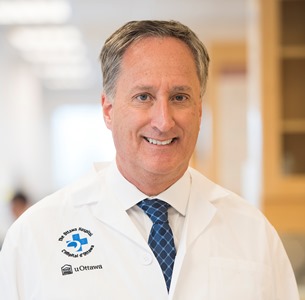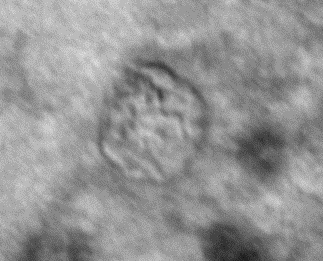 Dr. Kevin Burns
Dr. Kevin Burns
The kidneys are one of the most sensitive organs in the body. They are often the first to shut down during a critical illness like septic shock and the last to come back (if they come back at all).
Dr. Kevin Burns and his team previously found that “exosomes” released from progenitor cells in human umbilical cord blood can prevent kidney cells from dying during this kind of acute injury. Their latest research, published in Scientific Reports, helps explain how it works.
They found that injured kidney cells release a protein called SDF-1alpha, which attracts the exosomes through a protein called CXCR4. So when the exosomes are injected intravenously into mice with acute kidney injury, they target just the kidney and deliver certain healing factors.
This research may offer new ways to repair acute kidney injury, which affects one in 20 hospitalized patients.
“The kidneys are one of our most sensitive organs, and often the first to shut down during a critical illness. Our research may offer new ways to heal them," said Dr. Kevin Burns, senior scientist and kidney specialist at The Ottawa Hospital and professor at the University of Ottawa.
Authors: Viñas JL, Spence M, Gutsol A, Knoll W, Burger D, Zimpelmann J, Allan DS, Burns KD.
Funding: Research at The Ottawa Hospital is possible because of generous donations to The Ottawa Hospital Foundation. This study was also supported by the Kidney Foundation of Canada and the Canadian Institutes of Health Research.
The Ottawa Hospital: Inspired by research. Driven by compassion  Exosomes are tiny membrane-bound vesicles released by cells. Courtesy of J. Viñas and K. Burns.
Exosomes are tiny membrane-bound vesicles released by cells. Courtesy of J. Viñas and K. Burns.
The Ottawa Hospital is one of Canada’s largest learning and research hospitals with over 1,100 beds, approximately 12,000 staff and an annual budget of over $1.2 billion. Our focus on research and learning helps us develop new and innovative ways to treat patients and improve care. As a multi-campus hospital, affiliated with the University of Ottawa, we deliver specialized care to the Eastern Ontario region, but our techniques and research discoveries are adopted around the world. We engage the community at all levels to support our vision for better patient care. See www.ohri.ca for more information about research at The Ottawa Hospital.
University of Ottawa: —A crossroads of cultures and ideas
The University of Ottawa is home to over 50,000 students, faculty and staff, who live, work and study in both French and English. Our campus is a crossroads of cultures and ideas, where bold minds come together to inspire game-changing ideas. We are one of Canada’s top 10 research universities—our professors and researchers explore new approaches to today’s challenges. One of a handful of Canadian universities ranked among the top 200 in the world, we attract exceptional thinkers and welcome diverse perspectives from across the globe. www.uottawa.ca
Media Contact
Jennifer Ganton
Director, Communications and Public Relations
Ottawa Hospital Research Institute
Office: 613-798-5555 x 73325
Cell: 613-614-5253
jganton@ohri.ca
